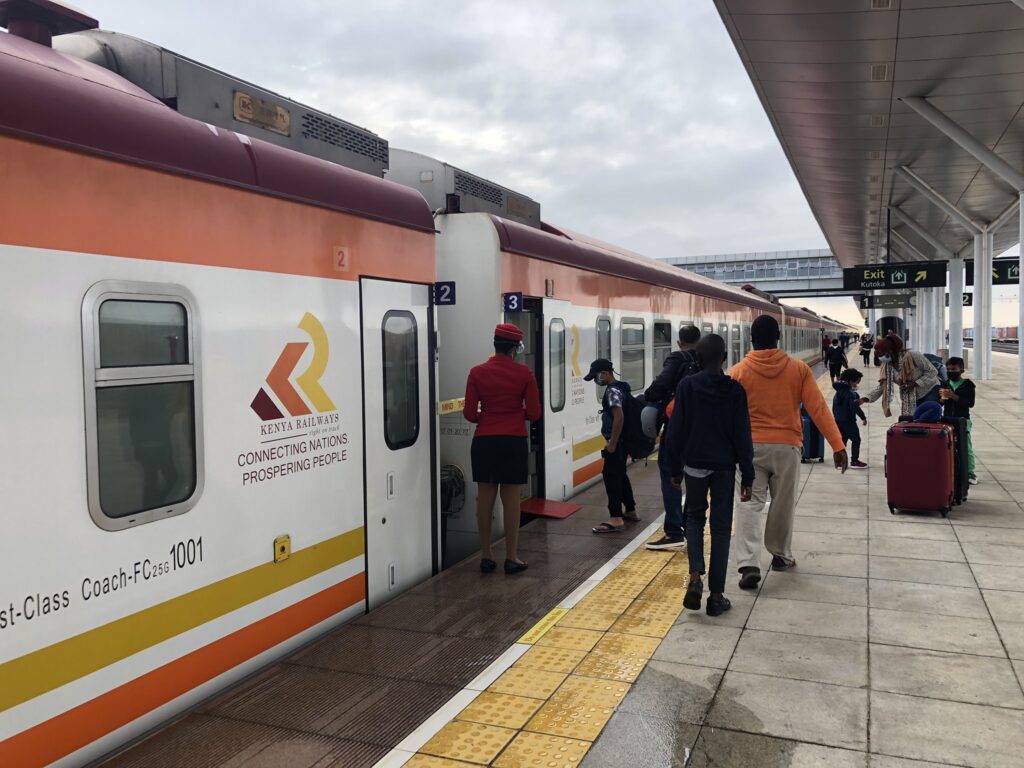Gatundu South MP Moses Kuria has exposed the level of rot, lies and real Kenya’s debt in a damning report by the Africa Centre for Open Governance (AfriCOG).
“For seven years, we have lied about our debt, we have cooked books, we have cheated people that we do zero-based budgeting. We have taken loans at 9% that left people offering us money at 1%. As Parliament, we have failed Kenyans because we have sold to them the romantic story that all is well,
“We failed in our oversight role because we could have said no, but we said yes, selling lies that all was well because we believed in respecting the Executive, and most of us are members of the ruling party. We have lied to Kenyans,” reads the quote from Moses Kuria.
Released on November 12, the damning report titled Highway Robbery examines in details 3 sectors of the Jubilee administration’s flagship initiatives namely: the last mile connectivity electricity project, the dam projects and the road construction programme.
According to the report, in the first four years of the Jubilee administration, these three initiatives absorbed Ksh843 billion, equivalent to 43% of government’s capital budget over the period, excluding the new Mombasa Nairobi Standard Gauge railway, which accounts for 17% on its own.

The cumulative expenditure for the energy, infrastructure cluster plus water for the four Jubilee years is Ksh1.4 trillion, 2.2 times the Ksh642 billion spent during President Mwai Kibaki’s administration.
President Uhuru Kenyatta’s statement during the 2017 State of the Nation Address where he stated thus “In 2013, we promised to undertake the most aggressive road construction programme ever seen in Kenya. With 1,950 km of new roads completed and another 7,000 km under different phases of construction, we have kept the promise,” was dissected and questioned in the report.
Published data show that during the Jubilee Administration’s first term (2013-2017), the national network of paved roads increased by 5,800 km, from 7,685 km to 13,485 km. This includes 2000 km of newly paved roads that were under construction when the Jubilee administration took over.
“The claim that the government had 7,000 km under construction translates to seven times the breadth and eight times the length of the country, or to use a more familiar distance, 14 times the distance from Nairobi to Mombasa,” the report reads in part.
In terms of the Last Mile Connectivity project, the first phase was financed to the tune of Ksh13b, to connect 314,200 households to existing transformers. This translates to Ksh41,375 per connection. Households were required to contribute an additional Ksh15,000 for a total of Kshs56,375.
However, “On the market, households can buy a basic solar power package for Ksh20,000, that includes four LED bulbs and other peripherals,” reads an excerpt from the report.
- Meet Boda Boda Operator Simon Injendi Who Has Survived 10 Road Accidents At Same Spot
- BREAKING NEWS: Matugu Mp Justus Murunga Succumbs To Covid-19
- Drama In Busia As A Man Believed To Have Died And Buried Re-Emerges
- President Uhuru Comes To Leonard Mbotela’s Rescue, Clears His Sh1.1 Million Medical Bill
In mid-February 2019, the local media was awash with photographs of the site of the proposed Arror dam in West Pokot County, for which the contractor had already been advanced Ksh7 billion months before.
As the public was digesting this, the Directorate of Criminal Investigations (DCI) published a notice summoning 107 companies that the contractor had paid from the advance for supplies ranging from hotel linen to consumer electronics, that had no bearing on dam construction.
It also emerged that even though the contractor had been paid, the dam was yet to be designed, raising questions as to how the contract price was arrived at.
The stalled mega-dam projects are not the only scandals in the water sector. Kiserian Dam, built at a cost of Ks1 billion turned out to be not only a complete failure but also an environmental hazard.
“The poor works on the dam have seen it become a collection point of sludge and sewage. It was poorly procured and sited,” Water and Sanitation Cabinet Secretary at the time, Simon Chelugui, told parliament in August 2019. The dam, he said, could not be salvaged, and the only solution was to refill it.
In it’s conclusion, the latest AfriCOG report stated that during the Jubilee administration there is sufficient evidence of “budgeted corruption”, which is in turn a manifestation of state capture corruption.
RELATED POST:Raila Rebukes Church Leaders, Tells Them they Had 2 Years To Forward Their Recommendations